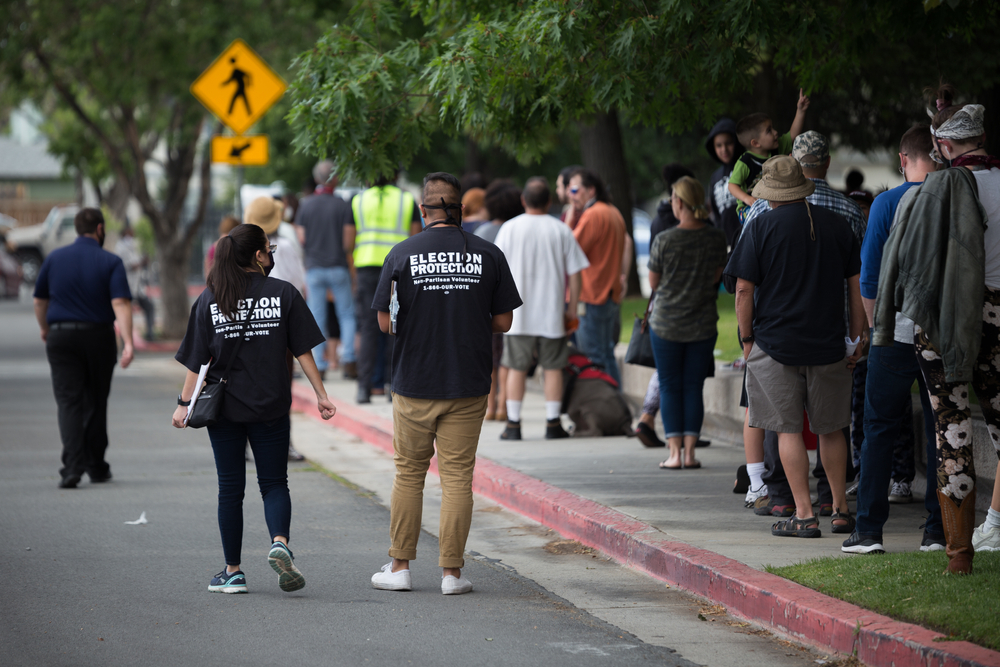A new report from the Brennan Center for Justice at NYU School of Law reveals exposure to the criminal justice system, no matter the length of time, carries consequences that “extend far beyond a guilty plea, trial verdict, or release from prison.”
People who have been convicted of a crime can expect to earn at least 16 percent less, on average than their peers. Those who have been to prison will lose around half of their earning potential. Over the course of a lifetime, that loss, on average, approaches half a million dollars.
The ramifications are huge. There are more than 70 million Americans with a criminal history.These lost wages, in aggregate, cost people touched by the criminal justice system more than $372 billion annually, according the report, titled Conviction, Imprisonment, and Lost Earnings: How Involvement with the Criminal Justice System Deepens Inequality.
Brennan researchers found the loss is not evenly distributed. Black and Latino people suffer the consequences most acutely and the losses worsen the economic disparities between Black, Latino and white communities. The report found that white people who have a prison record see their earnings trend upwards, while formerly imprisoned Black and Latino people experience a relatively flat earnings trajectory. Because Black and Latino people are also overrepresented in the criminal justice system, these economic effects are concentrated in their communities and exacerbate the racial wealth gap. Black people with no criminal history earn less than socioeconomically similar white people with a record. Black people without a record earn $39,000, while white people with a record earn $49,000.
RELATED: Ginsburg leaves legacy of fighting for equality
RELATED: Jury consultant: Dress can be a key to a courtroom win
The numbers speak volumes. Ames Grawert, senior counsel, justice program, John L. Neu justice counsel, and co-author of the report, shared his thoughts on the significance of their findings.

“People who have been to prison miss out on roughly half of their earning potential,’’ he said. “That is a truly shocking finding — and means that prison can be the difference between escapable and inescapable poverty. Tragically, our report suggests that this is especially the case for people of color with a history of imprisonment — who see their earnings trajectory remain relatively flat even later in their career.”
Another result he calls key is that a Black man or woman with no criminal conviction earns less than a white man or woman with a criminal conviction. “This is a sobering reminder that racial discrimination continues to be rampant in employment,” Grawert said.
What was surprising?
“A misdemeanor conviction (an annual reduction in earnings of around 16 percent) was not that much different than the impact of a felony conviction (around 22 percent),’’ he said. “This finding suggests that even minor criminal justice involvement presents a serious barrier to economic wellbeing.”
The report includes a number of recommendations. Grawert offered highlights: “One key recommendation is that policymakers expand diversion programs — that is, local initiatives run by courts or prosecutors that offer people charged with (usually lower-level) offenses a chance to avoid conviction if they complete certain alternative programming, or satisfy other conditions.”
He says a good example is Project Reset in New York City, where people who might otherwise be charged with certain types of misdemeanors are instead given a chance to complete “community-based programming.” Upon successful completion, prosecutors decline to pursue their criminal case. These initiatives can help reduce misdemeanor convictions, blunting some of the economic impact in the report. But these initiatives have to be funded to work, Grawert said, and policymakers might balk at the (relatively modest) price tag. Grawert hopes policymakers realize the price of these programs is a small one to pay compared to the economic damage caused by conviction and incarceration.
The researchers also propose that cities, states, and private employers “ban the box” —– that is, defer inquiries about criminal history until later in the application process.
“But, given the state of today’s fragile economy, it’s possible that people with a criminal record may become the first to be furloughed, the last to be rehired, and that policies for expanding employment for people with a record may fall by the wayside,’’ Grawert said. “That would be a mistake. We hope our report will show that we need to rebuild a functioning economy that works for all people —– including those with a criminal record —– if we hope to eliminate racial and economic inequality.”
Lastly, they recommend making it easier for people with a criminal record to access the social safety net — for example, federal benefits, and public housing.
“Unfortunately, it is all too easy to stigmatize people with a criminal record, and to leverage fear to oppose policies that would help them,’’ Grawert said. “We hope that our report shows that this is unwise. Criminal justice involvement entrenches poverty, which is, in turn, correlated with crime and recidivism; we need to create pathways out of poverty, and cutting justice-involved people out of the safety net runs contrary to that goal.”














